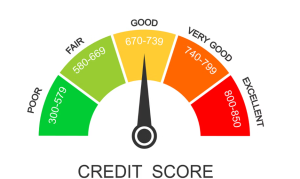A $650K Fine for Unwanted Spam
3 min read
Introduction: In a notable turn of events, credit reporting giant Experian is facing the consequences of its actions as it agrees to pay a hefty $650,000 fine for spamming individuals. This article delves into the details of the case, the implications for Experian, and the broader conversation surrounding privacy and responsible data practices.
The Spamming Allegations Unveiled: Experian, a major player in the credit reporting industry, found itself under scrutiny for allegedly engaging in unsolicited spam emails. The Federal Communications Commission (FCC) took notice of the complaints from individuals who received unwanted communications from the credit bureau.
Details of the Fine: In response to the allegations, Experian has agreed to pay a substantial $650,000 fine as part of a settlement with the FCC. This penalty reflects the seriousness with which regulators view violations of anti-spam regulations.
Violations of Anti-Spam Regulations: The case against Experian centers on violations of anti-spam regulations, which aim to protect individuals from unsolicited and intrusive communications. The credit bureau’s alleged actions raise questions about the ethical use of personal data and the boundaries that companies must respect in their outreach efforts.
Individual Impact: For the individuals who received the unwanted spam from Experian, the settlement serves as a form of acknowledgment that their privacy rights were violated. Beyond the financial penalty, it prompts a conversation about the responsibility companies bear in handling consumer data.
Experian’s Response and Accountability: Experian has responded to the settlement by expressing its commitment to compliance with all regulations and its dedication to addressing the concerns raised. The incident underscores the need for heightened accountability in the data-driven age.
Privacy Concerns in the Digital Age: The case against Experian amplifies broader privacy concerns in an era where personal data is a valuable commodity. As individuals increasingly rely on digital platforms, the boundaries between responsible data use and privacy invasion become critical points of discussion.
Regulatory Scrutiny on Data Practices: Experian’s fine is part of a larger trend of increased regulatory scrutiny on companies’ data practices. Regulators worldwide are taking a closer look at how organizations handle and utilize personal information, emphasizing the need for stringent data protection measures.
Lessons for Industry Players: The settlement with Experian sends a clear message to other industry players about the consequences of violating privacy regulations. It underscores the importance of transparent and ethical data practices to maintain trust with consumers and avoid regulatory penalties.
Consumer Empowerment in the Digital Age: In light of such incidents, consumers are encouraged to be vigilant about their digital footprint. Understanding privacy settings, opting out of unwanted communications, and staying informed about data protection rights empower individuals to take control of their online presence.
The Road Ahead for Experian: Beyond the financial implications, Experian faces the challenge of rebuilding trust with consumers. Transparency, robust data protection measures, and proactive communication about privacy practices will be crucial in regaining the confidence of those affected by the spamming incident.
Conclusion: Experian’s $650,000 fine for spamming serves as a cautionary tale in the ongoing dialogue about privacy, data ethics, and responsible business practices. As individuals and regulators demand accountability, companies must navigate the digital landscape with a heightened awareness of the ethical implications of their actions, ensuring that data practices align with legal and ethical standards.





